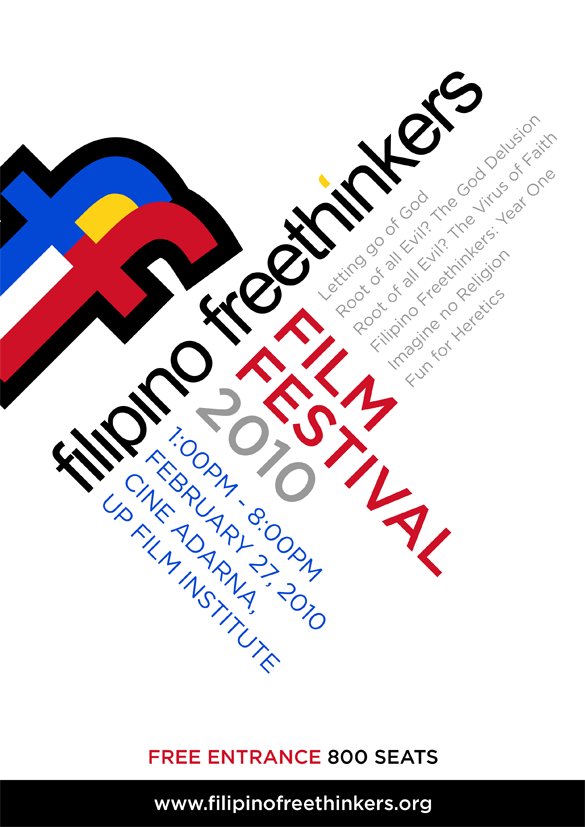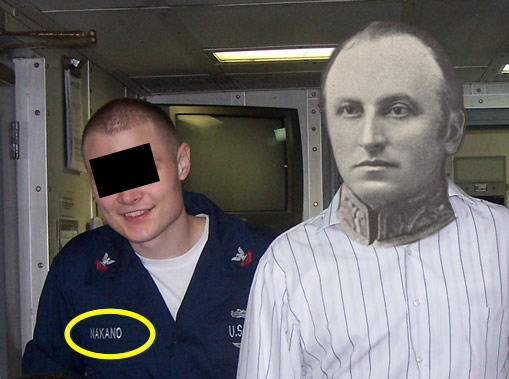Due to aggressive evangelism and indoctrination over the course of three centuries of Spanish colonial rule (ending in 1898), the Philippines today is overwhelmingly Catholic. A few percent, mainly in the far south, are Muslim, a very few communities still practice pre-colonial indigenous religion, and maybe 10% or so have converted to Protestant or evangelical Christian sects due to American influence over the course of America’s half-century of colonial rule (roughly 1898-1946). While the US-derived constitution does provide for separation of church and state, Catholicism is still so deeply entrenched that the technically required secularism of public education is said to be ignored, and (as I have mentioned before) public policy in areas like birth control are largely dictated by Vatican doctrine.
But of course, there are exceptions. While abortion is utterly banned (although naturally, still available in sub-par conditions to the desperate), condoms are sold openly in every convenience store and pharmacy, and the overpopulation crisis has led to a bill in congress to provide public funding to birth control, against the will of the Church and the staunchly Catholic current president Gloria Arroyo. (Arroyo’s term is nearly over, and the fate of the bill under the next president, yet to be chosen, is uncertain.) Homosexuality is another interesting case. While the law of the land affords no particular rights to LGBT citizens, in comparison with the recent trend in many Western countries towards allowing same sex partnerships of one variety or another, or anti-discrimination laws, the Philippines also does not persecute gays and lesbians, as for example, most Muslim countries so, and as many US state would continue to do if so allowed by the federal government. The society at large, like most of Southeast Asia, is also generally exceptionally tolerant of minority sexualities when compared with the official doctrine of the dominant, highly conservative, religion.
But while being an out of the closet gay is generally acceptable here, coming out as an atheist is reportedly considered to be something deviant. If atheists are the most distrusted minority in America, surely their status is even lower in the Philippines. While my handful of Filipino friends here, who I know from studying in Japan, all fall on or near the atheist end of the spectrum, virtually every other person I have spoken to in the Philippines has been a vocal Christian, usually Catholic.
Which brings us, finally, to the title of this post. The day before yesterday I was getting a tour around the historical district of Intramuros from a government archaeologist named Joseph, he mentioned to me that he and his family had converted from Catholicism to American style evangelical Christianity several years before, and that he now found the idolatry of Catholicism disturbingly heretical. “These days,” he told me, “the number of freethinkers is really on the rise.” This turn of phrase both surprised and intrigued me, as the term “freethinker” is one I had always associated with the modern atheism movement, but I still understood his usage. I must admit that to make a conscious choice regarding one’s belief and walk away from the religion of one’s parents, rather than to un-critically accept it, is in a sense as much an exercise of freedom of thought as to walk away from religion entirely, even if as an atheist myself I consider both the original and adopted religion equally irrational.
With that brief conversation in mind, I was particularly intrigued when, yesterday afternoon at around 4pm, when I was wandering around the University of the Philippines Dilliman Campus, in Metro Manila’s Quezon City, following a lunch appointment I had had in the area, I was handed the following flyer and pointed to the red brick-faced UP Film Center just down the block.
Naturally, I went.
The program consisted of much what one might expect. (Full list here.) For example, the Richard Dawkins video The Root of All Evil? (Embedded below.)
<embed id=VideoPlayback src=http://video.google.com/googleplayer.swf?docid=9002284641446868316&hl=en&fs=true style=width:400px;height:326px allowFullScreen=true allowScriptAccess=always type=application/x-shockwave-flash> </embed>
And ending with Julia Sweeney’s Letting Go of God, which I have embedded part of below.
<!–copy and paste–><object width=”334″ height=”326″><param name=”movie” value=”http://video.ted.com/assets/player/swf/EmbedPlayer.swf”></param><param name=”allowFullScreen” value=”true” /><param name=”wmode” value=”transparent”></param><param name=”bgColor” value=”#ffffff”></param> <param name=”flashvars” value=”vu=http://video.ted.com/talks/dynamic/JuliaSweeney_2006-medium.flv&su=http://images.ted.com/images/ted/tedindex/embed-posters/JuliaSweeney-2006.embed_thumbnail.jpg&vw=320&vh=240&ap=0&ti=86&introDuration=16500&adDuration=4000&postAdDuration=2000&adKeys=talk=julia_sweeney_on_letting_go_of_god;year=2006;theme=is_there_a_god;theme=whipsmart_comedy;theme=spectacular_performance;theme=art_unusual;theme=master_storytellers;event=TED2006;&preAdTag=tconf.ted/embed;tile=1;sz=512×288;” /><embed src=”http://video.ted.com/assets/player/swf/EmbedPlayer.swf” pluginspace=”http://www.macromedia.com/go/getflashplayer” type=”application/x-shockwave-flash” wmode=”transparent” bgColor=”#ffffff” width=”334″ height=”326″ allowFullScreen=”true” flashvars=”vu=http://video.ted.com/talks/dynamic/JuliaSweeney_2006-medium.flv&su=http://images.ted.com/images/ted/tedindex/embed-posters/JuliaSweeney-2006.embed_thumbnail.jpg&vw=320&vh=240&ap=0&ti=86&introDuration=16500&adDuration=4000&postAdDuration=2000&adKeys=talk=julia_sweeney_on_letting_go_of_god;year=2006;theme=is_there_a_god;theme=whipsmart_comedy;theme=spectacular_performance;theme=art_unusual;theme=master_storytellers;event=TED2006;”></embed></object>
Both of those videos were ones that I already knew of, but had never seen, so I was happy to go in and watch them. And while they were enjoyable enough, I had really been hoping to see something local, either the Philippines equivalent of a Richard Dawkins-esque attack on the pernicious influence of religious dogma on society or a documentary about the Filipino Freethinkers group itself. Unfortunately, there were no locally produced films, although they are trying to put together something themselves for the next time. But following the conclusion of the last film, Ryan Tani, president of the group, did take the lectern and microphone and give a summary of the FF’s history, purpose, and activities.
The founding members, a half-dozen friends of an atheistic/agnostic persuasion and frustrated with a lack of public space to discuss their feelings about religion, decided to organize an informal meetup group just over a year ago. After experimenting with different schedules, they settled on a bi-weekly meetup, which gets an average of 20-30 attendees, out of a total of perhaps 100 who come from time to time, and out of 800 members on their Facebook group, which also includes plenty of members who live too far away to make it to the Manila meetups.
A couple of months ago they decided to organize this film festival as a means to reach out to a wider audience. Interestingly, funding for the film festival, which seemed to borrow some of the tried-and-true hospitality tactics of campus evangelical organizations like free snacks, was provided by a Silicon Valley entrepreneur with no apparent ties to the Philippines, who simply came across the fledgeling organization online and decided to help them out. He gave a brief comment towards the end of the program, but had to duck out before the post-event mingling and I was unable to chat with him to find out his story.
But I did spend a good while talking with those who stayed past the end of the films, which were mainly those who already knew each other from the meetups rather than new faces like myself, and ended up being invited along for dinner. (Amusingly, this was at the same restaurant I had eaten the night before with my local friends, a place called Trellis that we had been to on each of my three visits to Manila, and quite literally the only restaurant in the area the name of which I actually know.)
It is unsurprising that they chose the University of the Philippines Dilliman campus as their venue, as the flagship campus of the elite public university has a reputation for left wing – even Marxist – faculty and students. It is also unsurprising that the members of Filipino Freethinkers are themselves almost universally graduates or current students of elite schools like UP, Ateno de Manila or De La Salle.
Also unsurprisingly, it was a pretty geeky crowd, with a high representation of people in the software industry, sciences, psychology, and plenty of fandom for scifi novels, video games, comic books, tabletop role playing games, anime and manga, etc. Basically, the same kind of people I hang out with at home, with the same kinds of interests, and table discussion that sounds barely at all different from my friends back in New Jersey/New York, except for the Filipino accents, and sometimes – but surprisingly rare – interjection of Tagalog into the heavily English language conversation.
And about the same average level of religious engagement, except that while I estimate that at least half (maybe far more) of my atheistic/agnostic friends at home come from families of an already religiously apathetic bent, the Filipino Freethinkers almost all come from extremely Catholic, or at least Evangelical, families, who were strongly opposed to their decision to leave the Church. This social pressure makes clear why they decided that a specifically atheist themed social organization was needed. I suppose if I had grown up in the Bible Belt I might have longed for such a group in high school or college, but coming from Montclair, NJ it wasn’t exactly an issue, and spending several years in Japan – perhaps the most religiously disinterested nation on the planet – has put me increasingly out of touch with the reality of living in an overwhelmingly religious society.
The last several years have seen the birth of a new movement of pr0-atheism writing and activism around the world, which has even started to bubble up in the strictly Catholic Philippines. Pro-atheism films like those here are rarely, if ever, screened here (The Invention of Lying was also mentioned, as a major Hollywood film that simply wasn’t distributed in the country due to its anti-religious content), and this may very well have been the first public screening of most of this material.
The Filipino Freethinkers are trying to establish more local chapters of their informal group, and some current UP students who are formally establishing a campus chapter, as a registered campus organization, were in attendance. I won’t deny the great art and culture that religion has inspired throughout history, and I do very much enjoy learning about religion in its complexity, and do very much enjoy certain ritual aspects of religion, but as time passes I lean increasingly towards the stance that not only are the most fundamentalist religious – the Al-Qaedas and abortion doctor murders – dangerous to society, but that genuine, deeply felt religious belief is always the enemy of rationality and a danger to a stable world. It heartens me to see secularists starting to come out of the closet in this deeply religious country, and I wish them luck in persuading others of like mind to do the same.
I would also like to end by briefly making a statement along the lines of what was being proclaimed at the meeting. Opposition to religion does not mean opposition to morality, only a recognition that morality is derived from our nature as an evolved social animal, rather than from a supernatural source. Opposition to religion also does not mean opposition to the religious. Freedom of thought and belief is sacrosanct, and nothing is more important than the development of a society in which all shades of belief and non-belief are permitted.
The Filipino Freethinkers website is located at filipinofreethinkers.org , and they do most of their organizing through the Facebook group.



 Marmot has a post titled “
Marmot has a post titled “


 The intersection of Shijo and Kawaramachi street (四条河原町) is the heart of downtown Kyoto, which has long been anchored by large department stores – and in fact Kyoto is itself the birthplace of many of the dry-goods stores known as 呉服店 (gofukuten, roughly “traditional Japanese-style clothing stores” as opposed to 洋服店 (youfukuten) or “Western-style clothing stores”) that eventually evolved into the modern department store goliaths. Even department stores that originated in Edo or Tokyo (same city, different times) had strong ties to Kyoto, which was the center of the Japanese textiles and clothing industry until western style clothing took over as daily fashion in the 20th century.
The intersection of Shijo and Kawaramachi street (四条河原町) is the heart of downtown Kyoto, which has long been anchored by large department stores – and in fact Kyoto is itself the birthplace of many of the dry-goods stores known as 呉服店 (gofukuten, roughly “traditional Japanese-style clothing stores” as opposed to 洋服店 (youfukuten) or “Western-style clothing stores”) that eventually evolved into the modern department store goliaths. Even department stores that originated in Edo or Tokyo (same city, different times) had strong ties to Kyoto, which was the center of the Japanese textiles and clothing industry until western style clothing took over as daily fashion in the 20th century.

 The old Shirokiya store.
The old Shirokiya store. Hankyu’s retail division was a latecomer to Kyoto, having only opened their store in 1971, but Takashimaya had
Hankyu’s retail division was a latecomer to Kyoto, having only opened their store in 1971, but Takashimaya had  Just a couple of blocks to the west, along Shijo, one can also find the original
Just a couple of blocks to the west, along Shijo, one can also find the original 
 The last traditional department store that deserves mentioning is the one with the least history in the city, despite being one of the most visible today. I speak of course of JR-West Isetan, located in tower of the Kyoto Station building.
The last traditional department store that deserves mentioning is the one with the least history in the city, despite being one of the most visible today. I speak of course of JR-West Isetan, located in tower of the Kyoto Station building.